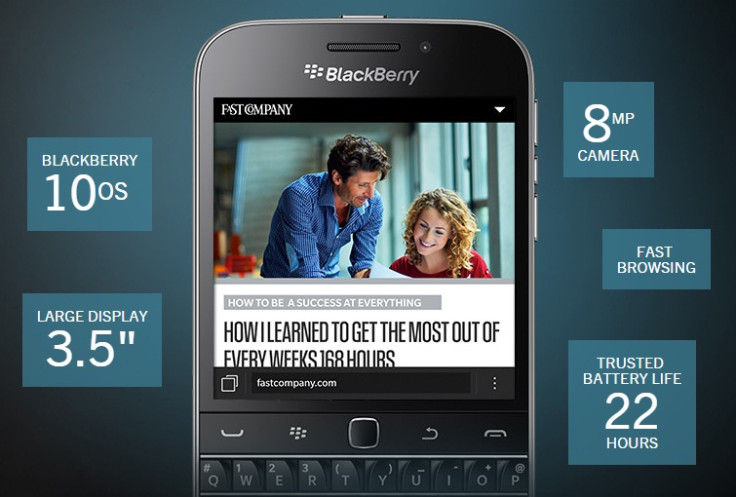BlackBerry smartphone users in the UK fall to below one million

Smartphone users are continuing to put BlackBerry smartphones down, and new research shows that UK market share is projected to be less than one million users, outside businesses, by the end of 2017.
This is a sharp drop from the heyday of BlackBerry, when almost eight million people were using BlackBerry mobile phones in June 2012, which equated to an 8% market share.
According to research from eMarketer, UK market share for BlackBerry will be only 1.9% this year, and the UK has long be considered to be one of the UK's most loyal user bases.
Of course, the writing has been on the wall for a while now, with BlackBerry being pushed out of the market due to the growing popularity of Apple's iPhone and the wide plethora of Android smartphones on the market.
BlackBerry losing 56,000 users a year
And last year, underdog Windows Phone climbed past BlackBerry to oust it out of third place position in the UK smartphone market.
Another research firm, Kantar Worldpanel, told the Guardian that BlackBerry's data showed that it currently has a user base of 1.4 million users in the UK. However, each month, the smartphone manufacturer is losing 56,000 users to other phone platforms.
Microsoft-owned Windows Phone popularity continues to grow, and eMarketer estimates that it will have 3.3 million users this year, a projected 8.5% market share.
iPhones currently represent one third of the total UK smartphone market share with 12.3 million users, while Android-based handsets have an outright majority with a market share of 56.2% and 21.5 million users.
"BlackBerry's fall from grace has been spectacular, but these latest figures show that even its previously loyal core seems to be leaving in droves. Its market share has been decimated by Android and iOS, and more recently by Windows Phone, which is slowly gaining a foothold in the UK market," said Bill Fisher, UK analyst at eMarketer.
"As these operating systems continue to see growth in their market shares, it's likely we'll see BlackBerry drop off the map completely, leaving us with just three main players in the UK market."
BlackBerry's woes since 2011
BlackBerry's woes began in October 2011 with a two-day-long hardware failure that left millions of BlackBerry users unable to access their emails, internet or social networks and cost the company over $50m in revenue.
Shortly after that, the company announced that it would be delaying its long-awaited BlackBerry 10 operating system until late 2012, which influenced BlackBerry's share price, causing it to lose 75% of its value.
In 2012, BlackBerry 10 still didn't make an appearance, and so consumers began to turn away from BlackBerry 7 handsets as they were supposed to be replaced by the new operating system. By 2013, when the operating system was finally launched, it was too little, too late.
Although the Z10 and the Q10 smartphones reviewed well, they would have been worthy competitors had they been released in 2010 or 2011.
BlackBerry has continued to shoulder on and is still releasing new phones, including the well-received BlackBerry Classic.
Despite this, there have been numerous reports of possible takeover deals, including a report by Reuters in January that said Samsung was planning to acquire BlackBerry for about $7.5bn, which has been hotly denied by both companies.
© Copyright IBTimes 2025. All rights reserved.






















